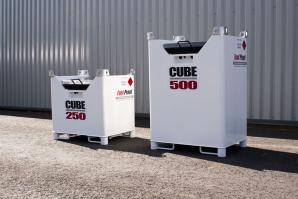Keeping up with demand
16 February 2012
Cutting costs is always a top priority for any business, but in recent times hauliers have been forced to explore previously unchartered territory in an effort to reduce waste and maximise productivity.
 In an increasingly competitive marketplace, the modern-day transport
operator has needed to evolve rapidly into a slick, highly-efficient
organisation, using the latest technology wherever possible to maximise
every area of their business and stay ahead of the game. In return, the
demands placed on this technology have increased massively, which has
led to a surge in development from equipment manufacturers. Benefits
such as being ‘user-friendly’ or ‘time-saving’ are no longer good enough
on their own; equipment needs to provide an instant and sizeable return
on investment to even be given consideration.
In an increasingly competitive marketplace, the modern-day transport
operator has needed to evolve rapidly into a slick, highly-efficient
organisation, using the latest technology wherever possible to maximise
every area of their business and stay ahead of the game. In return, the
demands placed on this technology have increased massively, which has
led to a surge in development from equipment manufacturers. Benefits
such as being ‘user-friendly’ or ‘time-saving’ are no longer good enough
on their own; equipment needs to provide an instant and sizeable return
on investment to even be given consideration. Recent advances in fuel storage and dispensing equipment by leading manufacturers are a prime example of this recent wave of development – not surprising considering the amount of money which is invested in modern fleet vehicles and fuel – as companies looking to upgrade their current refuelling setup will find. So what are the important things to consider before making a decision?
One area that is often overlooked but should be a high priority is fuel filtration. The quality of fuel supplied cannot always be controlled, but having a high-spec filtration system can minimise the risk of damage to both the vehicles being filled and also the pumping equipment on the tank itself. In recent years systems have evolved from basic particle-only filtration to aviation grade particle and water systems, removing minute particles of contaminants. Although there is an extra cost for the higher-quality filters, when you consider the potential cost of vehicle damage caused by poor quality fuel, this becomes a logical decision. In addition, a simple sump pump, which up until recently was only used for aviation fuel storage tanks, is now commonly used on diesel storage tanks to remove water and condensation from fuel, reducing the risk of bacterial growth and the blocked filters this can cause.
Fuel management systems are another feature which have recently become standard on diesel tanks. In previous years many would consider these systems as an expensive luxury, but companies are now more aware of the proven benefits this equipment gives. One of the most obvious of these benefits is fuel security, as the use of the refuelling equipment can be closely controlled to help prevent fuel theft and unauthorised dispensing. Access can be controlled in a number of ways including card keys and PIN numbers, meaning drivers and vehicles are uniquely identified on the system. All refuelling activity is recorded by the fuel management system, and can be accessed using PC-based software. This software has become much more intuitive and can provide information tailored to customer’s exact requirements, helping to monitor fuel consumption and vehicle mileage readings. Armed with this essential information, the transport manager can then make the key decisions as before, but with valuable time now freed-up to focus on other areas of their role.
In the past purchasing of fuel storage and dispensing equipment has required a host of additional work including civil works and electrical installations, but with the best modern tanks incorporating a mains electrical connection panel including pump isolation, overload protection, level monitoring and cabinet lighting, it’s now a case of drop it in position and away you go, with an electrician only required to make the connection to mains electrical supply.
By taking advantage of the benefits these features can offer, companies can find their refuelling setup becomes an integral part of their operation.
Released By
Fuel Proof Ltd




